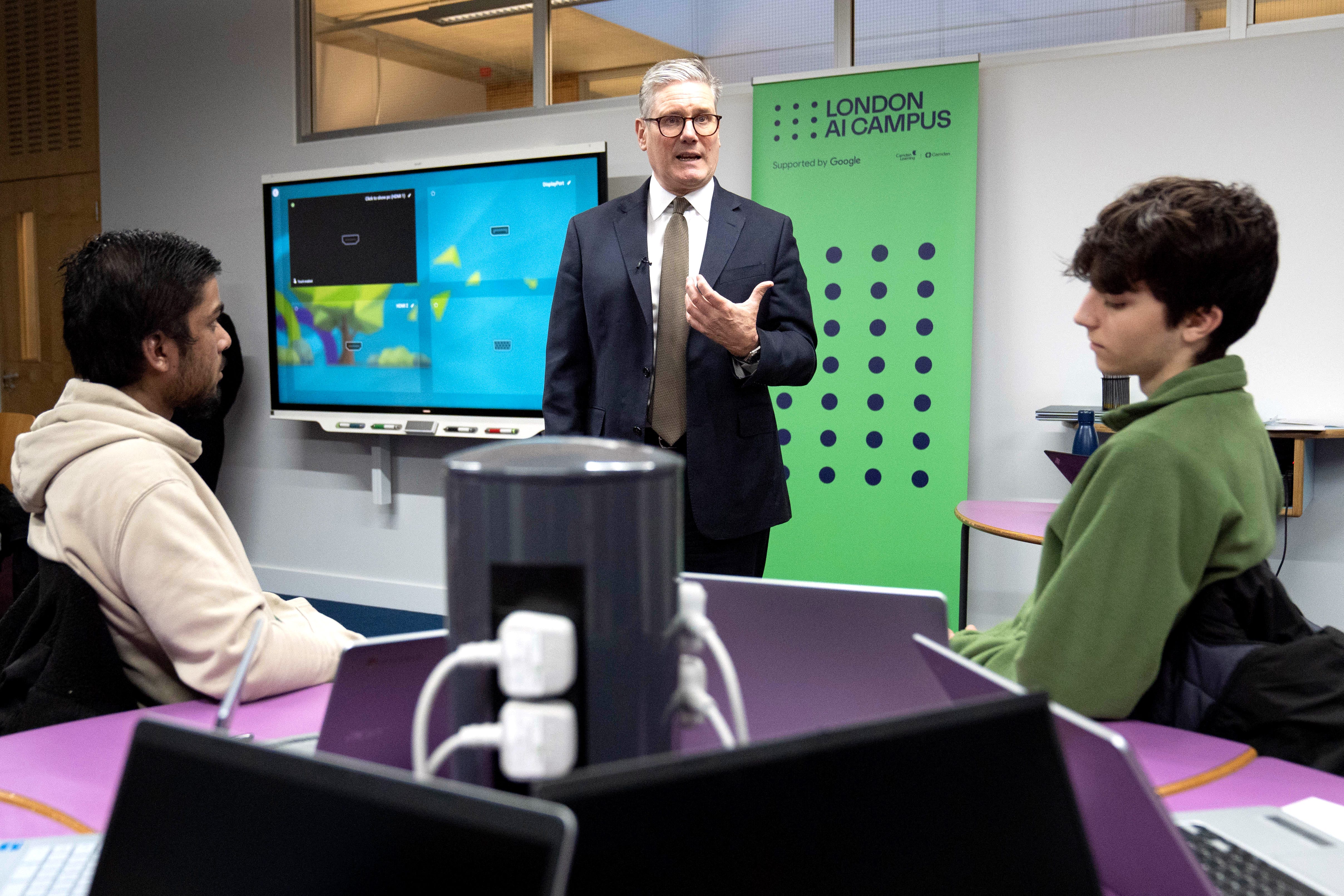AI action plan: The key points in the UK’s plan to be a ‘world leader’ in field
The Prime Minister has endorsed the report and said the Government would take forward all 50 recommendations within it.

Expanding the UK’s national AI infrastructure and supporting “homegrown” AI will be at the centre of the Government’s plans to embrace the new technology.
In its response to the landmark AI opportunities action plan written by tech entrepreneur Matt Clifford, the Government said it would look to build “sufficient, secure and sustainable AI infrastructure” to ensure the UK remained a global leader in the technology.
The Government has accepted all 50 recommendations made by the plan, which include a number of key commitments.
The central pillar of the plan sees the Government commit to building new AI infrastructure and expanding the UK’s “sovereign” compute capacity by at least 20-fold by 2030 to keep pace with global development.
The Government said this would be done by delivering a new state-of-the-art supercomputing facility to double the country’s existing AI research resource, with the Department for Science, Innovation and Technology (DSIT) to lock in a site and other key details this year.
A new, long-term compute strategy will also be published in the spring.
This will be combined with plans for so-called AI Growth Zones, designated areas where the Government would partner with the private sector to deliver large amounts of computing power to support “key national priorities” and create jobs in those areas.
The first site has already been confirmed as Culham in Oxfordshire and the headquarters of the UK Atomic Energy Authority.
In addition, the implementation of the action plan will see the creation of a National Data Library – a bank of securely held and managed public sector data, which could be used to support AI research and innovation.
The Government said these schemes will then be used to help the UK “secure a stake” in the global leadership of AI by supporting UK-based AI leaders and firms by giving them access to the new infrastructure and resources.
The Government said it was also committing to the plan’s recommendation of supporting top AI talent relocating to the UK to work with UK-based AI firms.
On AI regulation, the UK must continue to invest in its AI Safety Institute to ensure the technology is properly regulated and the public maintains trust in it, the action plan said.
It warned, however, that uncertainty around intellectual property is “hindering innovationand undermining our broader ambitions for AI” and “needs to be resolved”.
It recommended the UK adopt an approach like that of the EU which is “designed to support AI innovation while also enabling rights holders to have control over the use of content they produce”.
In addition, it said the Government needs to assess the current AI skills gap, the plan said, to ensure there are enough AI-ready workers.
Once this assessment is carried out, ministers must ensure universities boost the number of AI graduates, and expand the education pathways into AI.
An international scheme mirroring the scale of the Rhodes scholarship should meanwhile be established to bring foreign AI talent to the UK.
Elsewhere, the migration system should be used to encourage more graduates from abroad with AI skills to work in Britain.
Bookmark popover
Removed from bookmarks